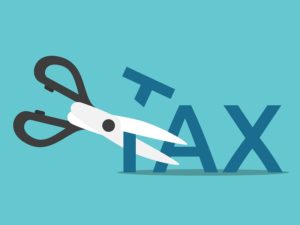Is a Personal Tax Inversion Right for You?

Is a Personal Tax Inversion Right for You?
It seems like no matter the time of year, taxes are always a hot-button issue. Lately, it appears that the topic getting the most attention in Washington, as well as in the media is tax inversions. Tax inversions continue to make a lot of noise and they continue to get lawmakers attention. So much so, that the president and many other elected officials are trying to put a stop to them, or at least make them less attractive and more difficult to carry out.
Tax Inversions Save Money
Of course, these corporate tax inversions, where companies shift the location of their headquarters to foreign countries, are designed to help these large corporations save on the their tax bill. There is no shortage of opinions regarding these deals with both liberal and conservative lawmakers choosing their sides. Some elected officials have even gone as far as to call these deals unpatriotic and unfair. Regardless of which side you fall on, companies who decide to go forward with tax inversions are seeing real savings on their tax bill.
Personal Tax Inversion Strategy
So what about someone who doesn’t own or run a large company? Do tax inversions even matter to the rest of the world? The answer is yes; because if you like to save money on taxes and you believe that it’s your right to do everything legally possible to reduce your tax bill, then this strategy might be right for you. It’s called a “personal tax inversion” and you can employ this tactic to potentially save hundreds of thousands of dollars, or even millions in some cases, on your state income taxes.
How Does it Work?
The personal tax inversion strategy is fairly new and it’s not right for everyone, but under the right circumstances it can save you a lit of money. Most people live in states that have a state income tax; only seven don’t. Some states have higher rates than others, like California for example, which has one of the highest, but a personal inversion can be helpful in any state with state income tax. Just like a corporate tax inversion, when you utilize a personal tax inversion you simply shift your assets to a state without any income tax. Plus, you don’t even have to move your address.
Non-Grantor Trust
Instead, all you have to do is set up a trust account in another state with a much lower income tax rate, or in many cases, with no state income tax at all. However, you must set up the right kind of trust. By creating a non-grantor trust you can place your assets into the trust and by giving up several tax strings you can actually rid yourself of ownership. The trust then becomes the “owner” and it is now responsible for paying income tax, instead of you. By setting up your trust in a tax-free state like Florida or Texas your trust ends up paying no state income tax.
There Is a Caveat
There is one important thing to remember when setting up one of these trusts. There is a risk of paying federal gift taxes if you transfer assets outside of your control. The way to avoid this problem is to set up an Incomplete Non-Grantor Trust, which allows you to give up just enough control to make your trust the “owner” but still have enough control to transfer assets.
Is It Right for You?
These kinds of trusts have become more popular but they aren’t for everyone. However, if you are a high-net-worth individual living in a state with a high income tax rate, then a non-grantor trust can create significant savings on your personal tax bill. If you would like to learn more about personal tax inversions and whether or not this strategy is right for you, then contact GROCO by clicking here, or give us a call at 1-877-CPA-2006.
Follow GROCO on Facebook
Which Tax Deductions Are Available This Tax Season?
Which Tax Deductions Are Available This Tax Season? Tax time has officially started. That means, if you haven’t already, it’s time to gather up all your important tax documents and information. It might also be a good time to hire an experienced accountant. The Tax Cut and Jobs Act will play a huge role in…
Tax Season Means Scam Season: What to Watch for
Tax Season Means Scam Season: What to Watch for Tax season means a lot of things. It means organized taxpayers are already preparing their returns and getting ready for their refunds. It means disorganized taxpayers are scrambling to find everything they need just to start their returns. It means accountants are busy helping both organized…
How the Falling Market Could Help You Save in Retirement
How the Falling Market Could Help You Save in Retirement The falling stock market has been a real downer for most investors to watch. The massive drops, as well as the volatile nature of the market in recent weeks and months, have left many investors trembling. But as with most bad news, there might be…
Your Chances of Being Audited Continue to Decline
What’s the scariest possible outcome of filing your taxes? Almost anyone would answer that question with “being audited.” Being audited by the IRS is never fun. Fortunately, it’s something that most people will never have to experience. The fact is the IRS actually audits very few returns all things considered. Furthermore, the IRS also…




